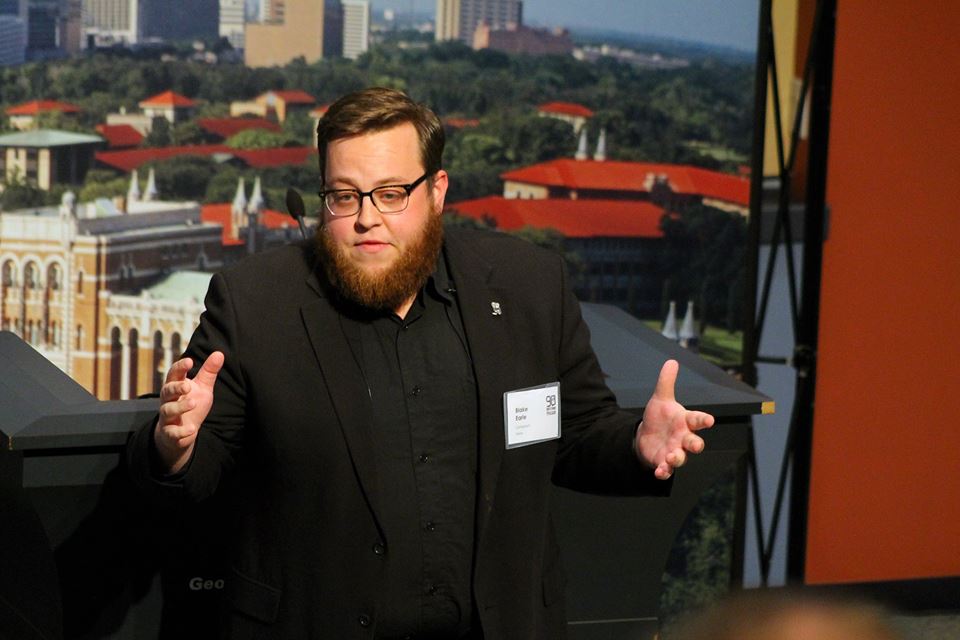
I am a Ph.D. candidate in history at Rice University and I will, for the first time, be teaching the first half of the American history survey this fall. Having previously worked in the First Year Writing Intensive Seminar (FWIS) program, I want to emphasize effective writing and communication through critical argumentation based on credible evidence. Through the course of the semester I hope my students will become historians in their own right to hone these skills that will benefit them for the rest of their academic and professional lives. Sorting through the themes and currents of American history, the environment will emerge as an important force that shaped, and in turn was shaped by, human societies. My desire to foreground the non-human world in my teaching stems not only from my conviction that the environment is a key component of understanding the human past, but also that the environment is a key to understanding the future. At a time when the consequences of humans’ poor stewardship of the earth seem particularly dire, I am, as an educator, compelled to confront my students with the fundamental nature of the human-environment relationship.
My interest in environmental history, unsurprisingly, extends to my research. My dissertation is an environmental-diplomatic history of the fisheries of the North Atlantic during the nineteenth century. Based on research conducted at the National Archives and the Library of Congress, among other places, my dissertation explores the relationship between the United States’ relationship with Great Britain and the commercial fisheries of the northwest Atlantic. In the process this project demonstrates the centrality of this maritime resource, if not the environment more broadly, to American statecraft and nationalism. Research related to this project will appear this fall in the Journal of the Early Republic. Inspired by my research I am also developing a class on American expansion during the nineteenth century and a course entitled “The U.S. and the (Natural) World,” that explores American foreign policy through an environmental lens. I can be found on twitter, @tbearle, where there will no doubt be a good mix
of celebration and commiseration as I navigate the survey for the first time while I try to finish my dissertation. I look forward to contributing to and benefiting from the TUSH community.
I am a Ph.D. candidate in history at Rice University and I will, for the first time, be teaching the first half of the American history survey this fall. Having previously worked in the First Year Writing Intensive Seminar (FWIS) program, I want to emphasize effective writing and communication through critical argumentation based on credible evidence. Through the course of the semester I hope my students will become historians in their own right to hone these skills that will benefit them for the rest of their academic and professional lives. Sorting through the themes and currents of American history, the environment will emerge as an important force that shaped, and in turn was shaped by, human societies. My desire to foreground the non-human world in my teaching stems not only from my conviction that the environment is a key component of understanding the human past, but also that the environment is a key to understanding the future. At a time when the consequences of humans’ poor stewardship of the earth seem particularly dire, I am, as an educator, compelled to confront my students with the fundamental nature of the human-environment relationship.
My interest in environmental history, unsurprisingly, extends to my research. My dissertation is an environmental-diplomatic history of the fisheries of the North Atlantic during the nineteenth century. Based on research conducted at the National Archives and the Library of Congress, among other places, my dissertation explores the relationship between the United States’ relationship with Great Britain and the commercial fisheries of the northwest Atlantic. In the process this project demonstrates the centrality of this maritime resource, if not the environment more broadly, to American statecraft and nationalism. Research related to this project will appear this fall in the Journal of the Early Republic. Inspired by my research I am also developing a class on American expansion during the nineteenth century and a course entitled “The U.S. and the (Natural) World,” that explores American foreign policy through an environmental lens. I can be found on twitter, @tbearle, where there will no doubt be a good mix
of celebration and commiseration as I navigate the survey for the first time while I try to finish my dissertation. I look forward to contributing to and benefiting from the TUSH community.
